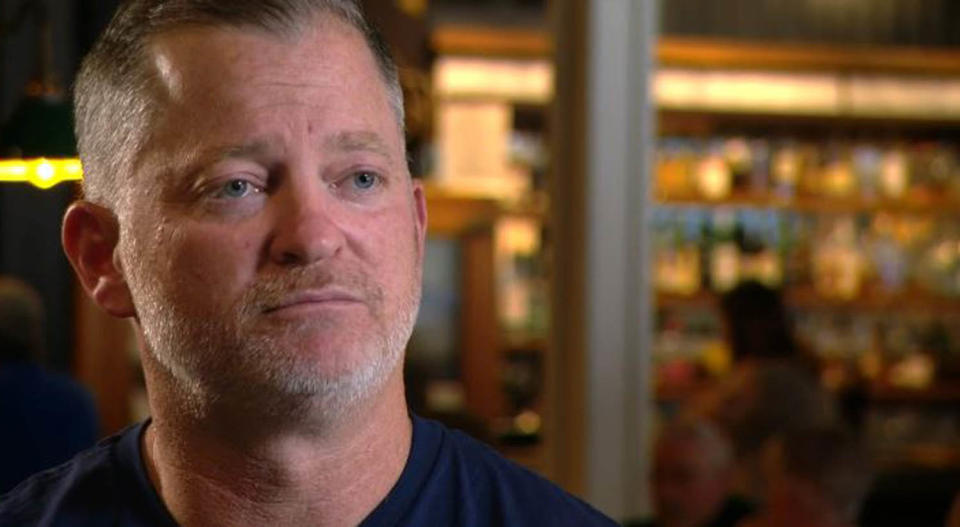Jun. 6—Jennifer Graham said she was standing in the sun waving a sign on Wednesday for three reasons: rampant drug use in Foster Park, a lawsuit filed against the city of Clarkston and “voluntary” homeless people camping in a residential neighborhood.
Many motorists driving by Graham and seven other people standing along Diagonal Street honked their horns in support of the movement to return the park to a safe gathering place for kids.
Instead, Foster Park has become the only site in the small city where homeless folks can legally camp at night. Graham and her cohorts have been speaking at Clarkston City Council meetings, posting on Facebook and calling police about the issue for more than three months.
“We are just trying to show people more of what’s going on,” Graham said. “We feel like our rights are being ignored, and the rights of drug addicts and voluntary homeless people at the park are more important to the city.”
A recent lawsuit filed against Clarkston by an attorney for the Northwest Justice Project is a sore point with the group. The suit alleges the city’s ordinance on camping disproportionately affected four individuals because of their disabilities.
Susan Bishop, of Clarkston, lives in the area and is wheelchair-bound.
“Basically, I’m stuck in my house because of people on the sidewalks,” she said. “These people are trampling on the rights of the truly disabled. I’m not bashing the homeless. I’m talking about the criminals.”
That’s a distinction that many of the Foster Park Advocates want to make clear. Their beef is with the folks who have adopted the homeless lifestyle and don’t want to change. A member of their grassroots group has used a metal detector to uncover a plethora of drug paraphernalia and dangerous weapons at the park, they said, making it an unsafe place for neighborhood kids, nearby church members and Holy Family School students.
“I’d love to see them get off drugs and get the help they need,” said Chris Alexander. “But there are some people staying there who don’t want to do that.”
Graham said it’s unfair for property owners and residents who follow the rules to pick up the tab for people who don’t, and the city shouldn’t have made Foster Park the only legal camping spot.
“I grew up in that house,” Graham said of her Clarkston property. “It makes me sick that my grandkids can’t use that park like I did.”
Clarkston police respond to multiple calls at the park on a daily basis. As the protesters gathered, two officers were at the park for an abandoned property report. Tents and other belongings have to be moved after 7 a.m. and can’t be set up again until 9 at night. Discarded items are placed in storage.
“We’re enforcing the laws based on the city’s code and directions from our attorney,” said Sgt. Darin Boyd. “The property we were just called about was moved off the sidewalk at my request.”
Scott Darrington, one of the unhoused individuals named in the lawsuit, said he joined the legal action because of the way homeless people are treated in Clarkston.
“We don’t want to be in Foster Park either,” Darrington said, “but we don’t have anywhere else to go.”
The people who drive by and scream or honk are not helping the problem, he said. The unhoused also are tired of people taking photos and videos and posting the content on social media.
Steve Bott, who often stays at the park, said there should be some better solutions, such as converting large, vacant commercial buildings into shelters.
“The people in this community should give a damn about all of the people in their own community,” Bott said. “Right now, it’s a no-win situation. It’s not a pick-and-choose side. Everyone needs to work together.”
A high-barrier shelter is coming to Lewiston, but Bott said he won’t leave Washington because marijuana is illegal in Idaho. In addition, he and others rely on the Evergreen State’s benefits.
“A lot of us get a state check,” Bott said.
Pastor David Carringer of First Christian Church walked through the park as the picket signs were displayed on the next block. He and his congregation operate the Red Door Kitchen in the church basement at 10th and Diagonal.
“I think the people on the street corner have every right to protest and express their views,” Carringer said. “We feel God has commanded us to feed the hungry. We’re serving meals to anyone who is willing to eat, regardless of their circumstances.”
On Monday, 14 people from the park ate at the church, along with 25 folks who live in the neighborhood, Carringer said.
A group of volunteers who help the homeless and were also named as plaintiffs in the lawsuit met Wednesday at the church to discuss their summer outreach plans. Previously known as the Elves for the Homeless, the organization recently shortened its name.
ELVES now stands for “Empowering Lives, Volunteers Encouraging Self-Sufficiency,” said Amanda Cox, one of the chairpersons.
“We encourage everyone to help themselves,” Cox said. “We want to help them meet their goals and connect them with local resources.”
Wendy Geiger, a member of ELVES, said the organization is focused on helping people get off the streets and into houses.
“We just want an evidence-based, cost-effective solution,” Geiger said. “We don’t want them living in a park.”
Sandaine can be reached at kerris@lmtribune.com. You can follow her on X @newsfromkerri.
Signup bonus from





